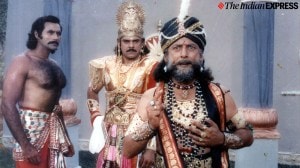‘I wanted to bring out the larger themes of chemistry, especially those that involve human interaction’: Bonnie Garmus, author, Lessons in Chemistry
The American writer on learning to thrive in a man's world, why experience, not age, counts, and her debut novel that became an unintended feminist manifesto
 Lessons in Chemistry is dedicated to Garmus's mother (Credit: Serena Bolton)
Lessons in Chemistry is dedicated to Garmus's mother (Credit: Serena Bolton)“In our society,” says Bonnie Garmus, “when a woman gets mad, she’s ‘in a rage’, whereas a man is simply ‘speaking his mind’.” The author of Lessons in Chemistry (Doubleday, Rs 550) is referring to how her career as a novelist took off on a bad day at work, which was, in the end, really only just another regular day in office. A senior copywriter, she had finished a presentation for a new campaign and asked for feedback from a roomful of male colleagues. “No one said anything. I asked again; still nothing. Finally, a man claimed that he had much better ideas. He went on to present my entire presentation for a second time (he actually read from my PowerPoint slide, which was still up on display!) Then he announced that we would be moving forward with ‘his’ ideas. Everyone in the room called him ‘brilliant and insightful’. I protested, pointing out that these were actually my ideas. No one spoke up on my behalf. After I left the meeting, I started wondering how many other women in the world were having the same day I was. As I walked back to my desk, I tried to tell myself that things for women had improved since the ’50s. But had they?” says the 66-year-old, in India to attend literary festivals in Mumbai and Jaipur.
Garmus wrote the first chapter of the novel that very day in office. Set in the 1950s, it is the story of Elizabeth Zott, the only woman chemist in an elite all-male laboratory, whose brilliance, independence and inscrutability make her a target of misogyny and whose brief wondrous marriage to the Nobel Prize-nominated Calvin Evans ends prematurely in tragedy. A decade later, at 31, having lost her husband and her job, and with a child to support, Zott accepts an offer to host a cookery show. Her precise recipes and her deadpan persona make for an unusual alchemy. Supper at Six, her show, births a huge fan following and a quiet feminist revolution. “Cooking is chemistry… And chemistry is life. Your ability to change everything — including yourself — starts here,” she tells her audience, teaching them how to occupy space wherever they go. “I used chemistry because cooking actually is chemistry,” says Garmus, who turned to old textbooks to master the subject as it was then. “But I also wanted to bring out the larger themes of chemistry, especially those that involve human interaction… Chemistry is the central science. It touches everything we do,” she says.
In her refusal to be stymied and her incapacity for emotional excesses or humour, Elizabeth Zott is an original, unlikely heroine. She leaves little notes in her daughter Madeline’s lunchbox — “Play sports at recess but do not automatically let the boys win” reads one; “It is not your imagination, most people are awful” reads another. These are not the advice of an embittered woman. If anything, Zott is utterly practical, entirely idiosyncratic. Garmus says the character appeared to her fully formed. “When I was writing Elizabeth Zott, I was writing my role model. Her voice came to me very easily. She’s full of conviction… a rationalist and a scientist. She doesn’t accept societal constructs unless they’re backed up by scientific evidence — which they rarely are. She refuses to give in to rules that make no sense. She says no without compunction. She will not accept the limits that society imposes on women because there is no scientific reason to do so. She does the same for sexism, ageism, and racism. None of these things are valid scientifically — she points this out repeatedly,” says Garmus.
 Garmus wrote the first chapter of the novel that very day in office. (Source: Amazon)
Garmus wrote the first chapter of the novel that very day in office. (Source: Amazon)
When the book came out in 2022, she hadn’t been prepared for its phenomenal success. “I’m accustomed to working alone and being alone and now I’m out in the public eye — which is hard for me,” she says. For a novel that explores a culture of misogyny, the lightness of touch and the absence of rancour lit a spark. Besides pushing it up on bestselling lists, the novel also lent itself for adaptation into a Brie Larson-headlined mini series that premiered on AppleTV+ last October.
Lessons in Chemistry is dedicated to Garmus’s mother. Mary Swallow Garmus had been a working woman — a nurse — in the 1950s, who had had to give up her career with the arrival of her children. “ I knew nursing was important to her; I knew she’d felt productive and alive when she was doing it; I knew she missed it a great deal. Nevertheless, society said women stayed at home with children and the man had the career. My father was great — he was an entomologist and he and my mother were very happy together. But she was stuck at home. So when she decided to renew her nursing licence at age 50 or so, he was supportive of that. I was very proud of my mom — she sat in a classroom filled with 20-years-olds and tried not to feel out of place. After she renewed her licence, she went back to work. Within a year, she’d won ‘Nurse of the Year’. This was in the 1980s, when AIDS was raging. I’m proud to say that my mother was the only nurse who volunteered for the AIDS floor,” she says.
Her mother’s persistence had taught Garmus an important lesson early in life – contrary to society’s veneration of youth, there was no sell-by date for experience, enthusiasm or success. “I don’t think age matters at all, minus the extremely positive part where I’ve been lucky to have more experiences than younger people — and I’ve gotten to practise my writing for a long time as a copywriter. When people read, I don’t think they consider the age of the author — hopefully, they don’t consider the author at all! That said, there are many young writers I greatly admire and I’m in awe of their skill. But overall, writers aren’t models or athletes — our talents don’t expire at age 35. If anything, they keep growing,” she says.





- 01
- 02
- 03
- 04
- 05


























